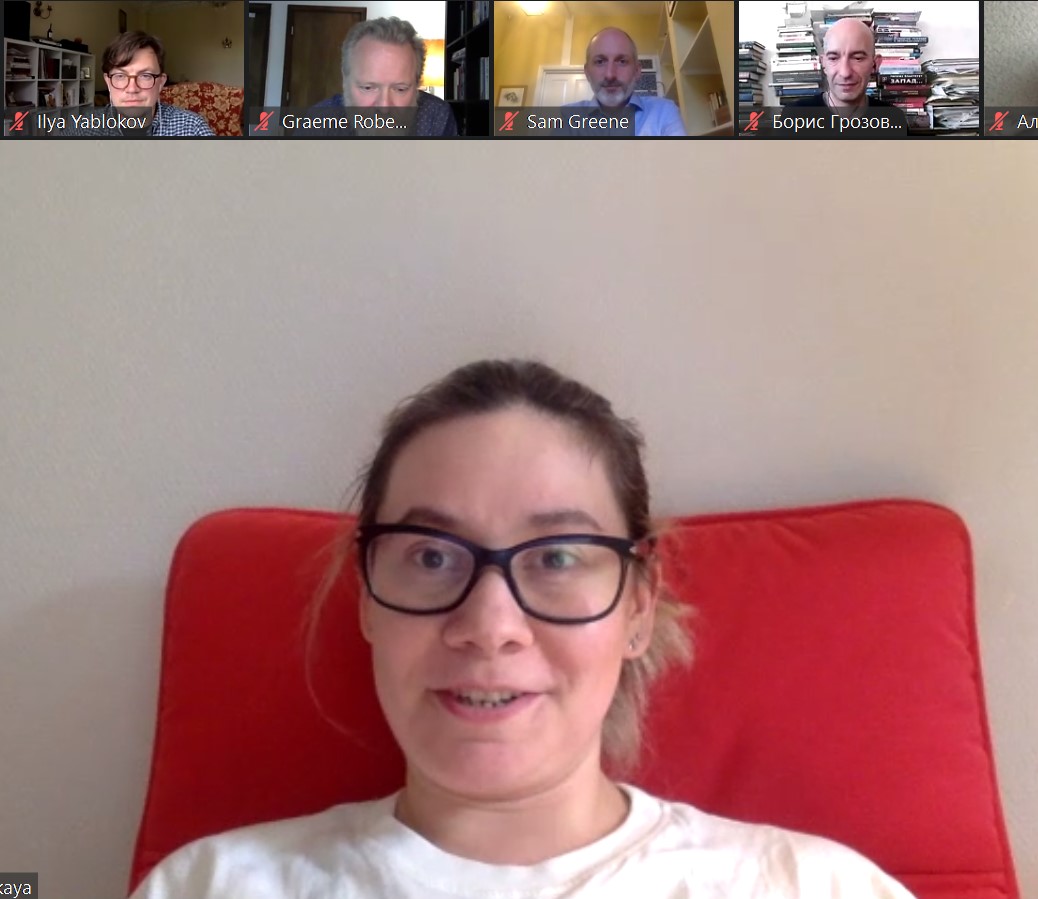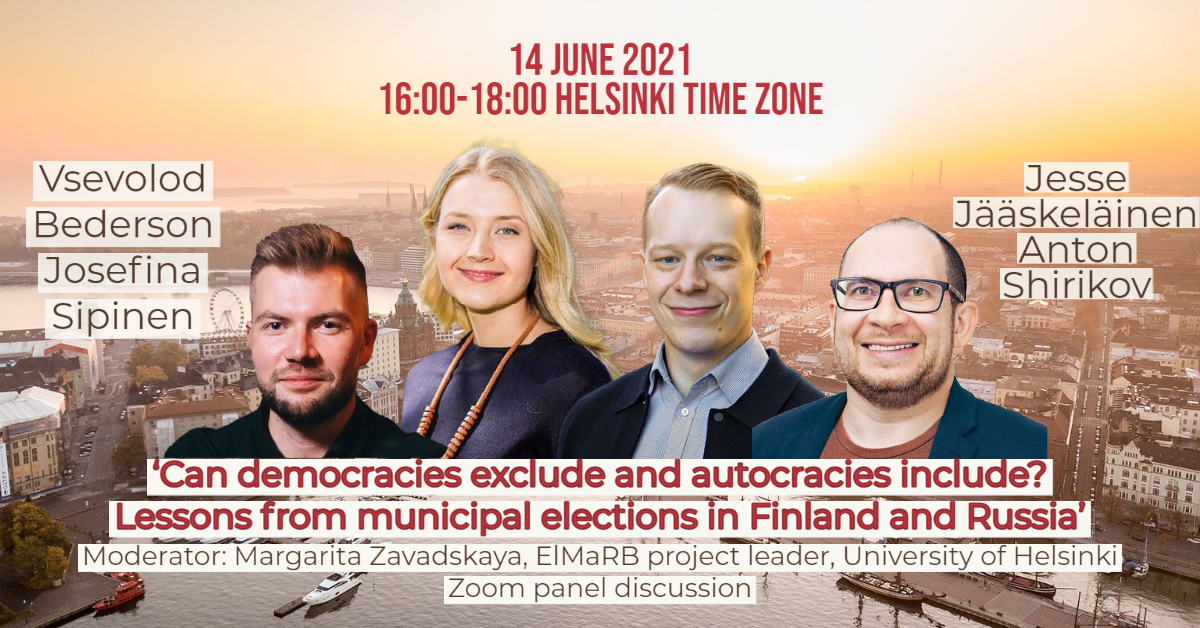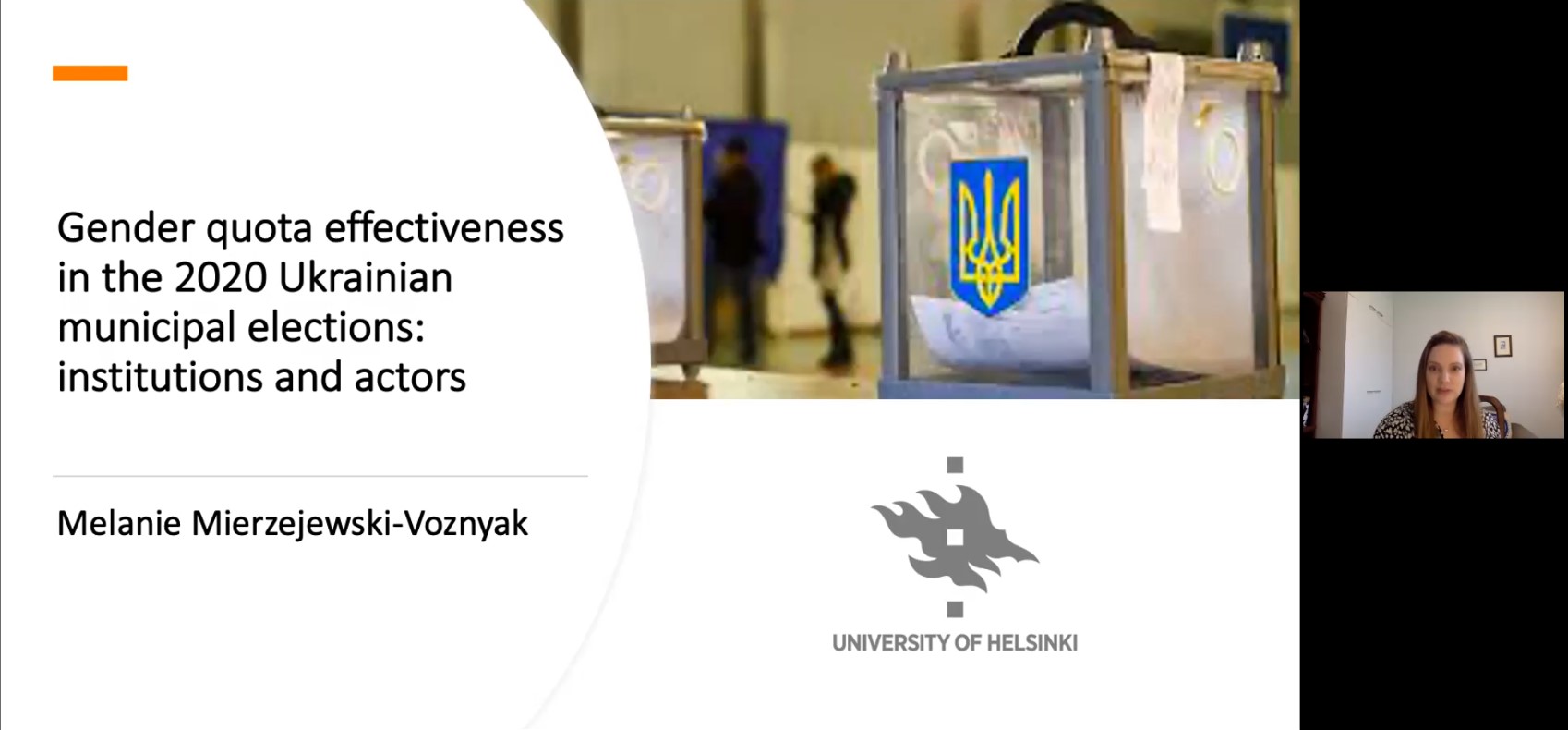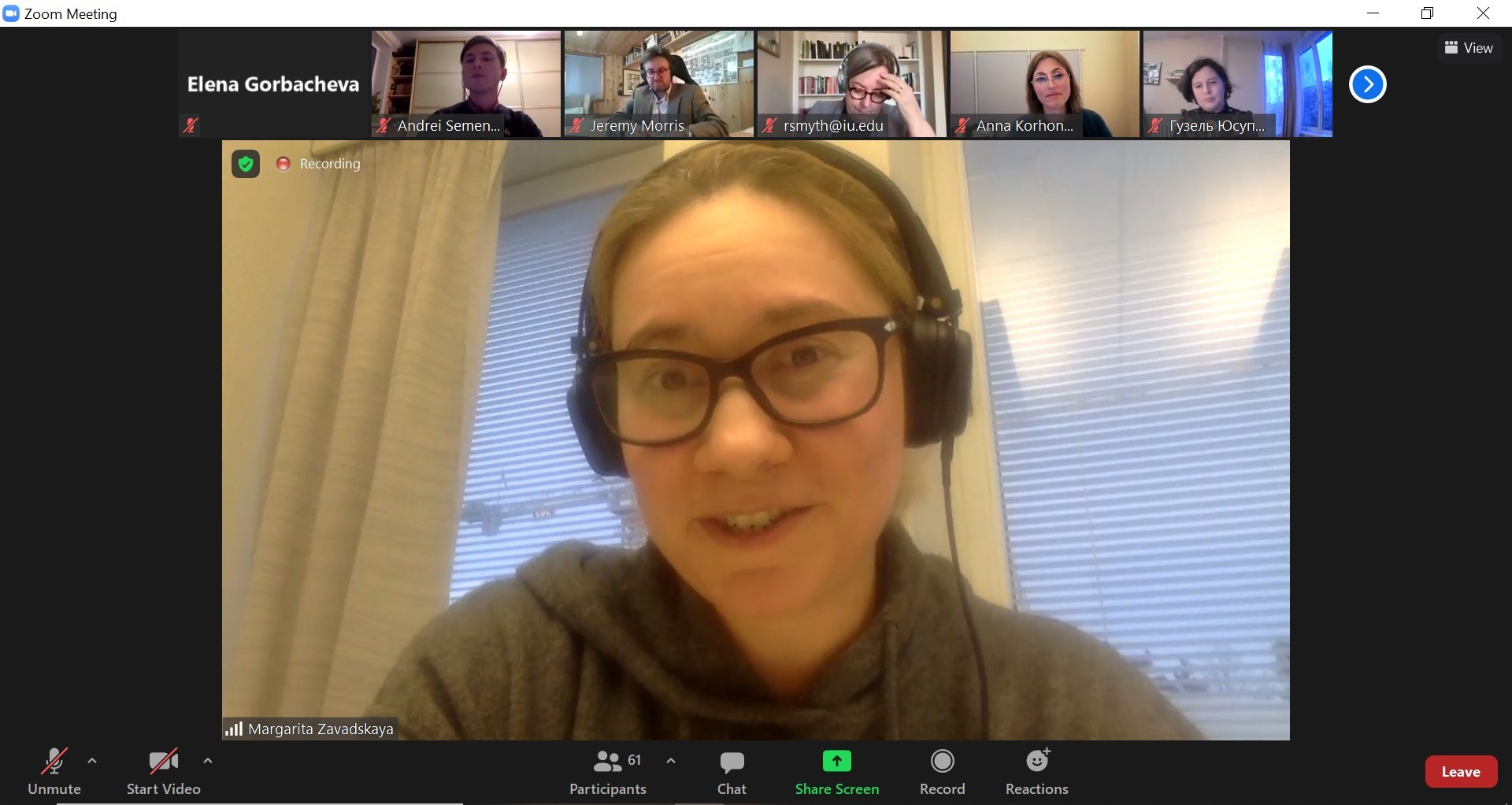On Thursday 17th of June Margarita Zavadskaya was one of the invited speakers at the Russian Law Talk seminar ‘All Doom and Gloom Before the Duma Vote?’. The other speakers included Dmitry Kurnosov, Carlsberg Fellow at the University of Helsinki, and Vitaly Averin, Member of the Federal Council of the Golos Movement.
On 19 September 2021 Russians will go to polls to elect 450 members of State Duma, the lower house of parliament. Although it wields little real political power, elections to the Duma always had outsize importance. They test the ability of local authorities to ‘deliver’ results for the federal center and also gauge public opinion without resulting in real change. The period before elections tends to bring both heightened repression and increased welfare spending to scare and bribe the electorate. This year is no exception. A slate of new repressive laws has been adopted in the past month to specifically target the supporters of imprisoned regime critic Alexey Navalny, who encourages tactical voting. Several opposition figures have already been arrested or forced out of the country. The upcoming election also seems to discourage any pressure on citizens to improve the currently lagging Covid-19 vaccination rate. A technical innovation is the rollout of electronic voting in several regions, despite remaining concerns over its security from fraud. The experts will discuss these and other themes related to the upcoming election.
In her speech, Margarita Zavadskaya covered three questions: 1) What are expectations for political participation in the State Duma elections 2021? 2) How Russian voters see electoral malpractice? What are misperceptions of electoral integrity in general and in Russia specifically?
This year the integrity of elections does not seem to be too different from the previous ones, with the exception of recent laws and decrees that pronounced FBK and other Navalny’s political structures as extremist organisations and prohibited anyone connected to them from running in the elections. But it not the quality of the elections that is important, but how the citizens perceive it. In 2019, for example, when several major oppositional figures were not registered as candidates in Moscow legislative elections, the Muscovites organised a series of rather massive protests.

This year we will still get to see how the citizens will perceive the quality of the elections, but at least three things should affect it: Covid pandemic, aggravated economic recession and inflation, and growing repression. Based in that, Margarita Zavadskaya expects low or mobilised turnout rates and decrease in genuine political support. Although she believes that there is low likelihood of large-scale post-election protests, mainly due to the increased cost of protesting in the more and more repressive regime.
The discussion was recorded and will be available in the future in the Development of Russian Law blog.




